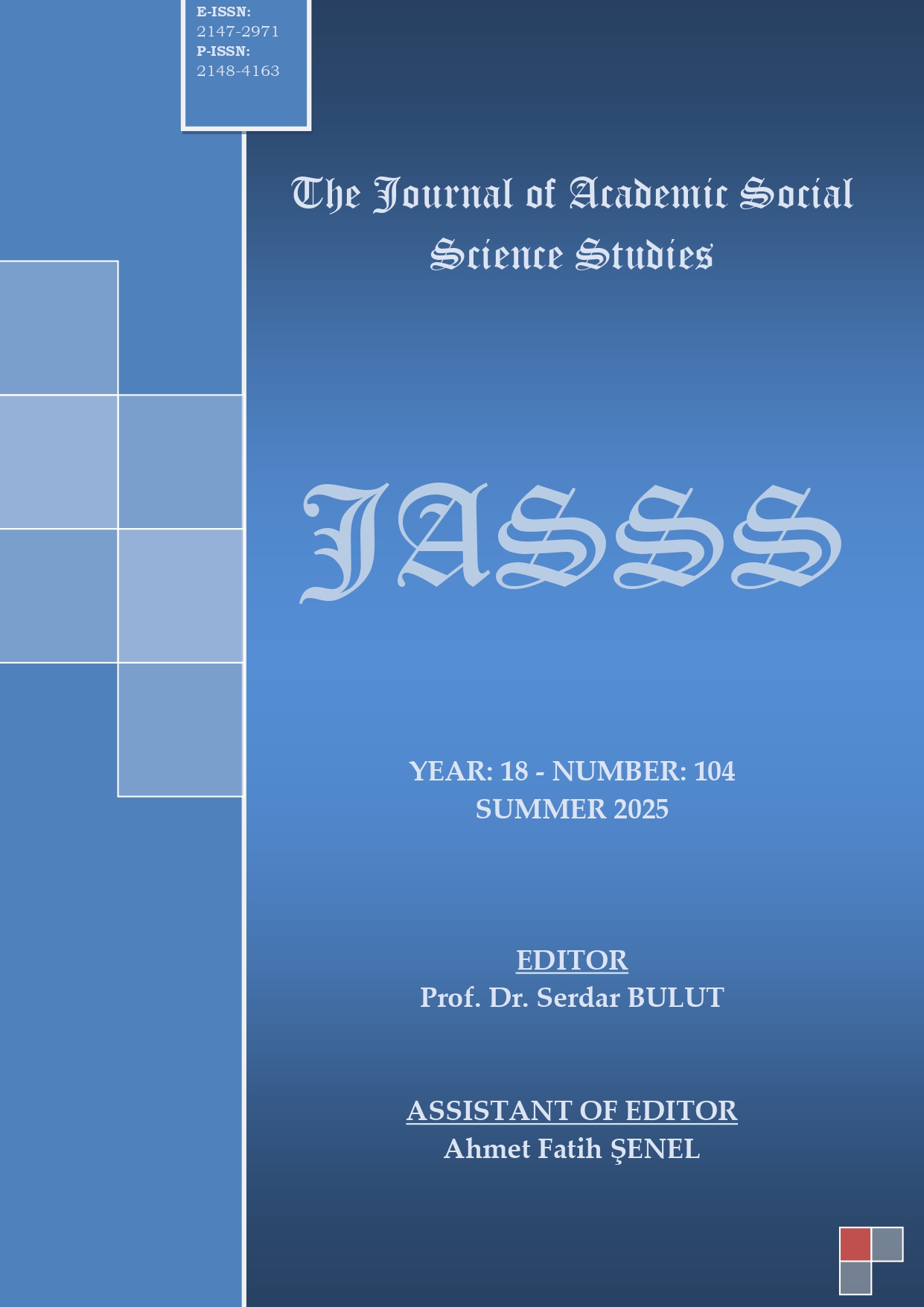Author :
Abstract
Bu çalışma, kısa video platformlarında yer alan içeriklerde matematiğin nasıl yansıtıldığını incelemeyi amaçlamaktadır. Bu kapsamda, YouTube Shorts platformunda yer alan matematik ile ilgili videolara belirlenen anahtar kelimeler ile ulaşılıp en çok görüntüleme sayısına sahip 26 video, içerik analizi yöntemiyle değerlendirilmiştir. Videolar; matematiğin doğası, matematik öğretmenleri ve matematik ile uğraşan öğrenciler ile incelenen içeriklerde mizahın kullanımı yönünden kodlanarak analiz edilmiştir. Bulgular, matematiğin çoğunlukla zor, karmaşık ve sadece belirli bireyler tarafından anlaşılabilecek bir alan olarak sunulduğunu ortaya koymaktadır. Kısa videolarda matematik öğretmenleri genellikle katı, mizahi veya kalıplaşmış özelliklerle betimlenirken; matematik ile uğraşan öğrenciler ya olağanüstü başarılı ya da başarısız ve kaygılı bireyler olarak temsil edilmiştir. Mizah ögesi, içeriklerin büyük bir kısmında belirleyici bir unsur olarak karşımıza çıkarken; öğretici içerikler sınırlı kalmıştır. Elde edilen bulgular matematiğe yönelik algı ve matematik öğrenimi açısından yorumlanmıştır. Çalışma, dijital içeriklerin matematik algısı üzerindeki potansiyel etkilerine dikkat çekerek eğitimciler ve araştırmacılara öneriler sunmaktadır. Kısa video platformlarının hızlı tüketilen, dikkat çekici ve mizah temelli yapısı, matematik gibi soyut ve zorlayıcı bir dersin daha yüzeysel ve eğlence odaklı algılanmasına yol açabileceği düşünülmüştür. Bu nedenle, matematik eğitimi alanındaki aktörlerin bu içerikleri eleştirel bir bakışla değerlendirmeleri ve pedagojik değeri yüksek, ilgi çekici dijital materyaller üretmeleri önerilmektedir. Ayrıca çalışmanın yalnızca bir kısa video platformu üzerinden yürütülmesi ve verinin sınırlı bir zamanda toplanması gibi durumlar çalışmanın kısıtlılığı olarak sunulmuştur.
Keywords
Abstract
The present study aims to examine the extent to which mathematics is reflected in the content of short video platforms. In this context, the videos about mathematics on the YouTube Shorts platform were accessed using a series of determined keywords, and the 26 videos with the highest number of views were evaluated by means of a content analysis method. The videos were then coded and analysed in terms of the nature of mathematics, mathematics teachers, students engaged in mathematics, and the use of humour in the content. The findings reveal that mathematics is often presented as a challenging and complex discipline, one that can only be understood by a select few. In the short videos, mathematics teachers were often portrayed as rigid, humorous or stereotypical, while students engaged in mathematics were represented as either exceptionally successful or unsuccessful and anxious. While humour was evident in the majority of the content, instructive content was limited. The findings were interpreted in terms of perception towards mathematics and mathematics learning. The study draws attention to the potential effects of digital content on mathematics perception and offers suggestions for educators and researchers. The attention-grabbing and humor-based nature of short video platforms may result in a more superficial and entertainment-oriented perception of an abstract and challenging course such as mathematics. It is therefore recommended that those engaged in the field of mathematics education should undertake a critical evaluation of these resources and produce engaging digital materials with high pedagogical value. Moreover, the study's limitations must be acknowledged. Firstly, it was conducted exclusively on a brief video platform, and secondly, the data was collected over a restricted time period.





